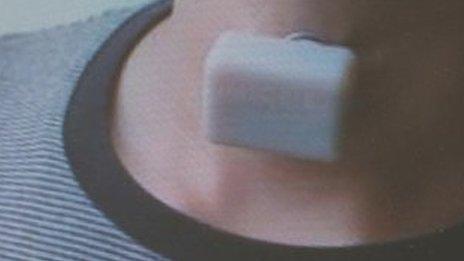Amelia Roberts' parents visit epilepsy fundraising research team
- Published
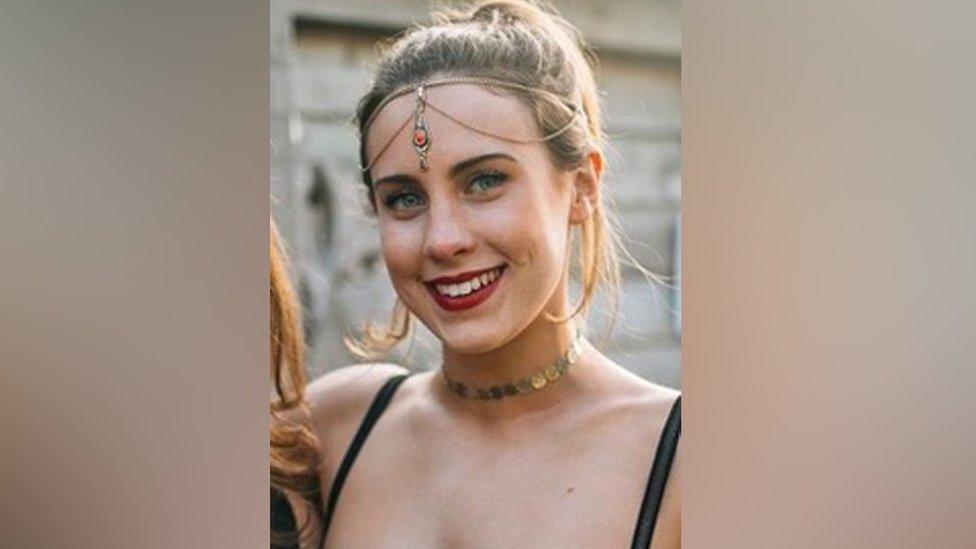
Amelia Roberts died from a rare form of epilepsy in 2018 - categorised as a sudden unexpected death in epilepsy
Bereaved parents whose appeal in memory of their epileptic daughter soared after a stranger's tweet have seen the "amazing" research it will fund.
Amelia Roberts was 21 when she died as a result of a rare form of epilepsy in Hertfordshire in 2018.
Last month, an order of service for her funeral was found by Hari Miller, who made a donation, external and shared the story.
She joined Hamish and Debbie Roberts to tour the Epilepsy Society Research Centre in Buckinghamshire.
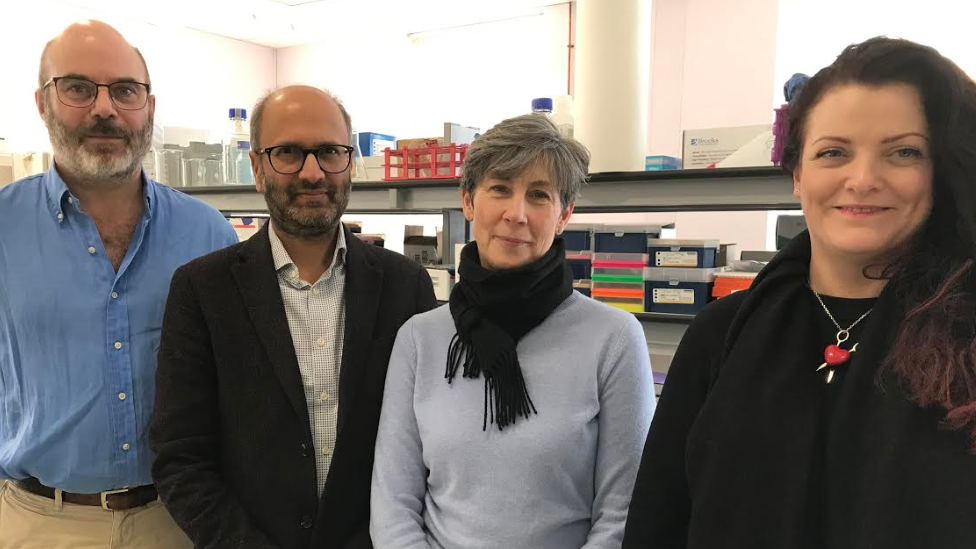
Hamish Roberts (left), his wife Debbie and Hari Miller (far right) met Prof Sanjay Sisodiya at the centre in Chalfont St Peter
They met Prof Sanjay Sisodiya, director of genomics, to hear how the £128,000 raised so far is being turned into potentially life-changing work involving DNA.
The online appeal had raised £80,000 before Ms Millar tweeted about making the discovery in a desk drawer at work on 17 January,
Her tweet was shared 9,000 times.
Ms Roberts died when she had a seizure while having a bath at her home in Long Marston near Tring.
Before she died, she had arranged to donate, external her brain to medical research.
"Meeting Professor Sisodiya has been really useful in understanding the challenges and complexities involved in addressing epilepsy," said Debbie Roberts.
"Our hope is that by raising awareness and raising funds for research, other lives will be saved.
"If just one family does not have to go through what we have been through, then we will have achieved our goal."
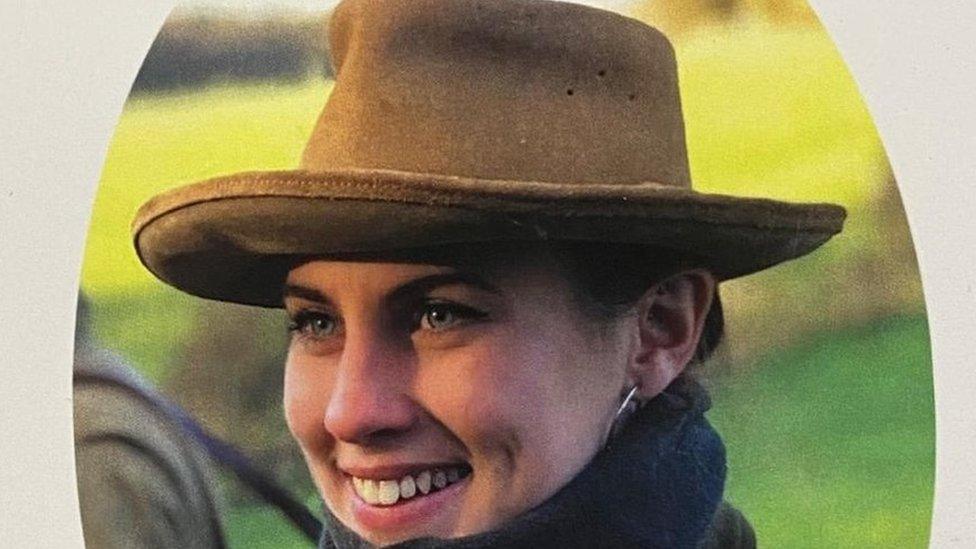
Hari Miller found Amelia's order of service in her office drawer
Ms Miller, who admitted in her Twitter thread that she had "a little cry in the toilet" about Amelia, said Prof Sisodiya's passion to make a difference was "just phenomenal".
Prof Sisodiya said: "All the funds will finance a bioinformatician for two years to carry out incredibly important work interpreting data from DNA samples.
"This will really help us to better understand the causes of epilepsy and improve treatments."
- Published21 January 2020
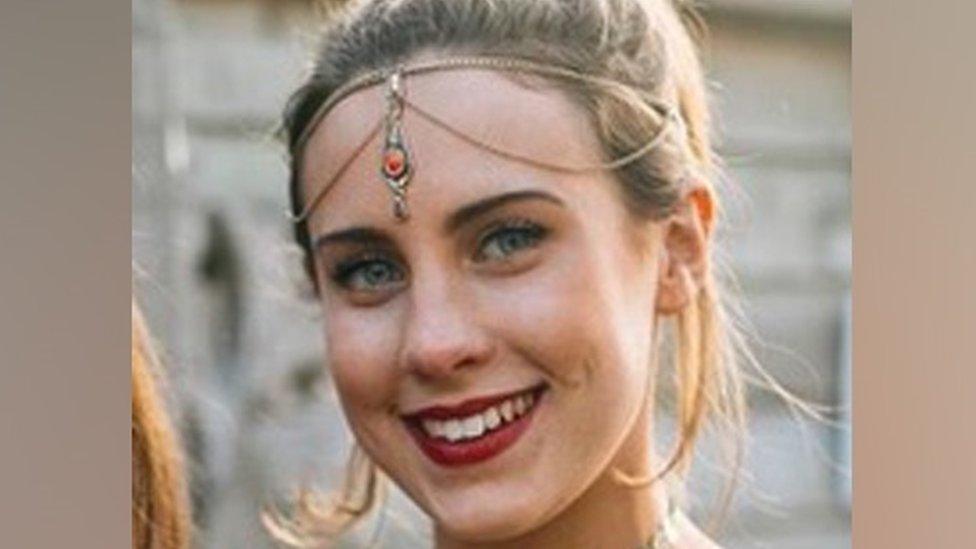
- Published14 August 2015
